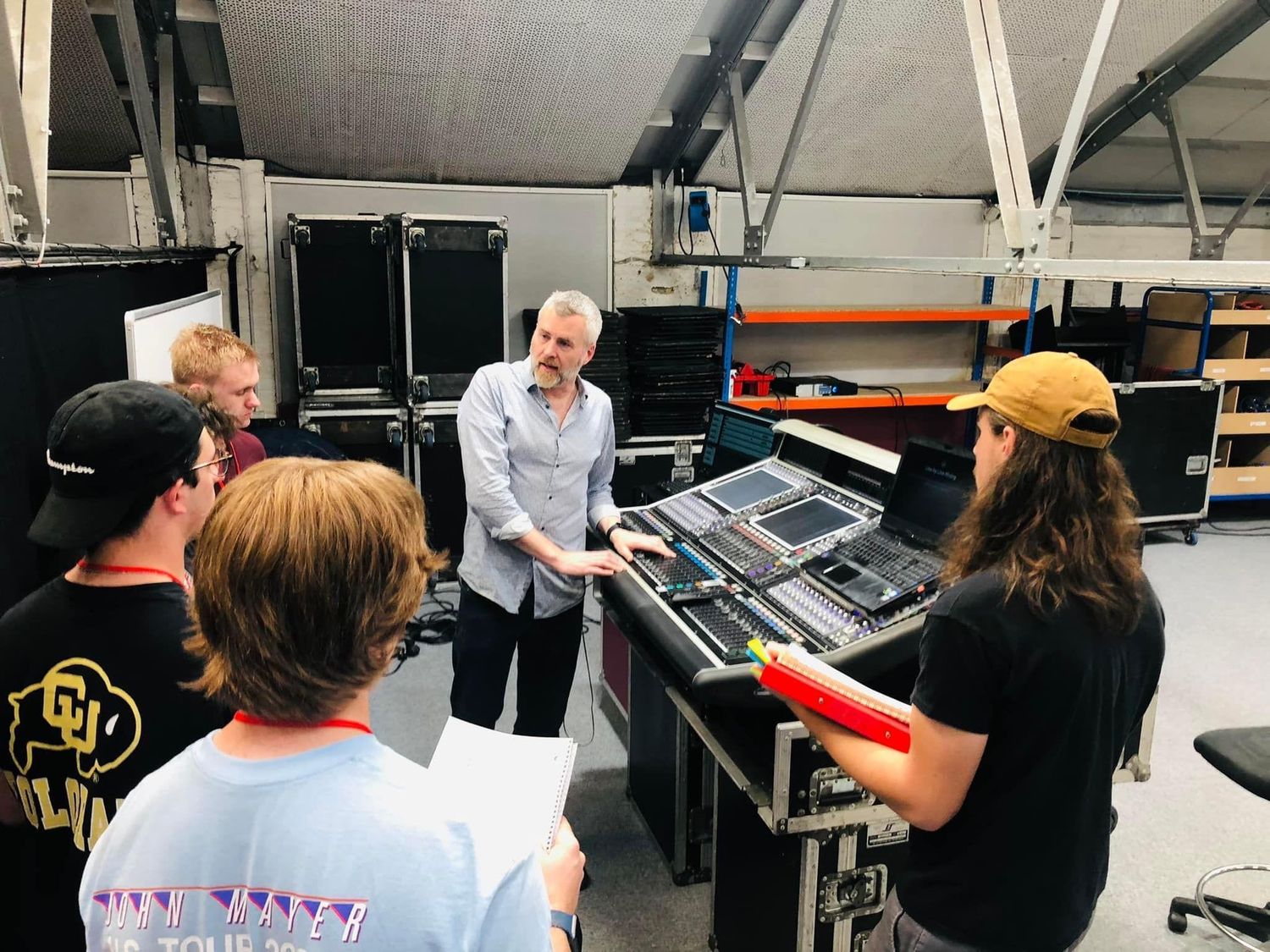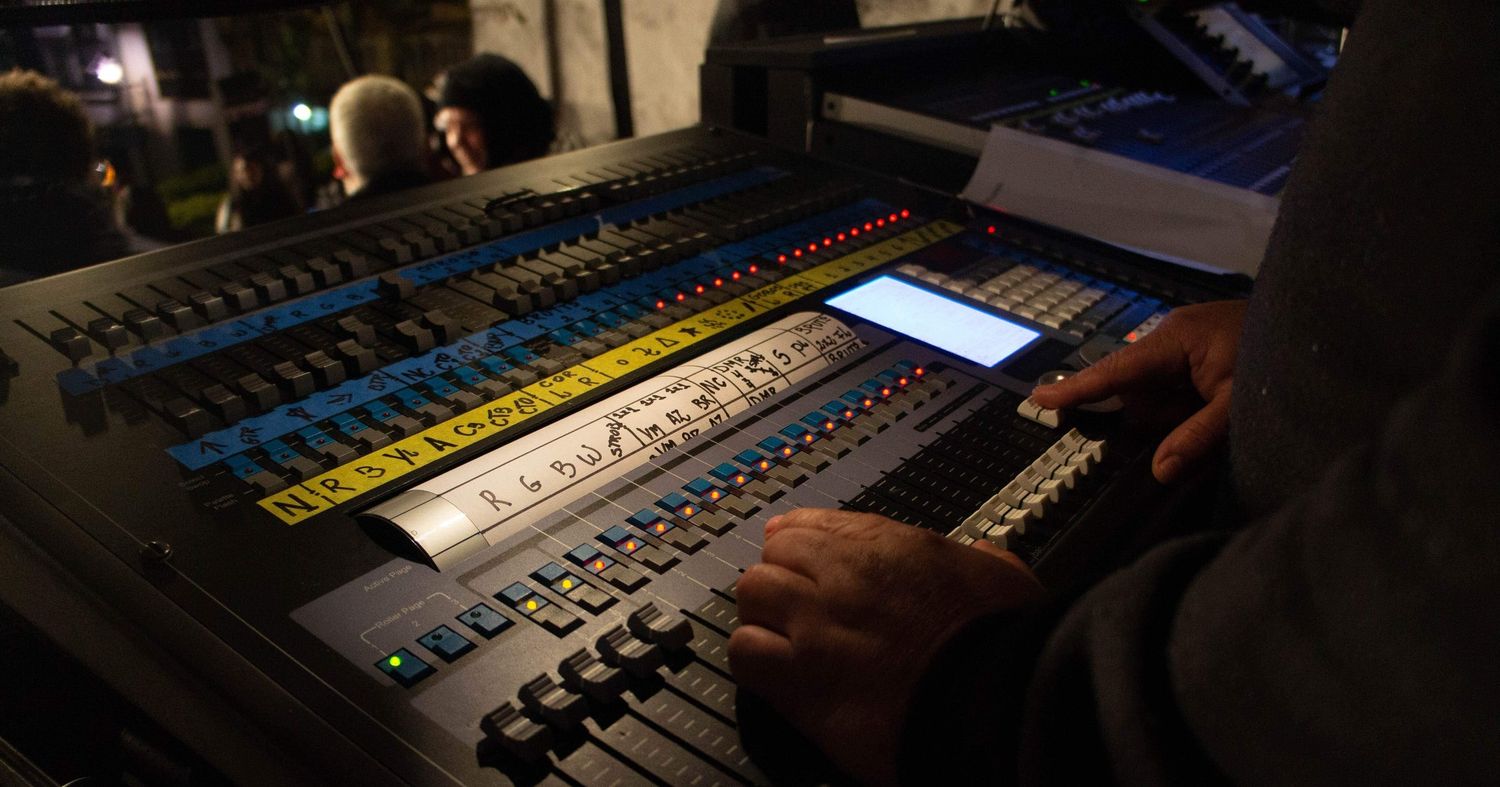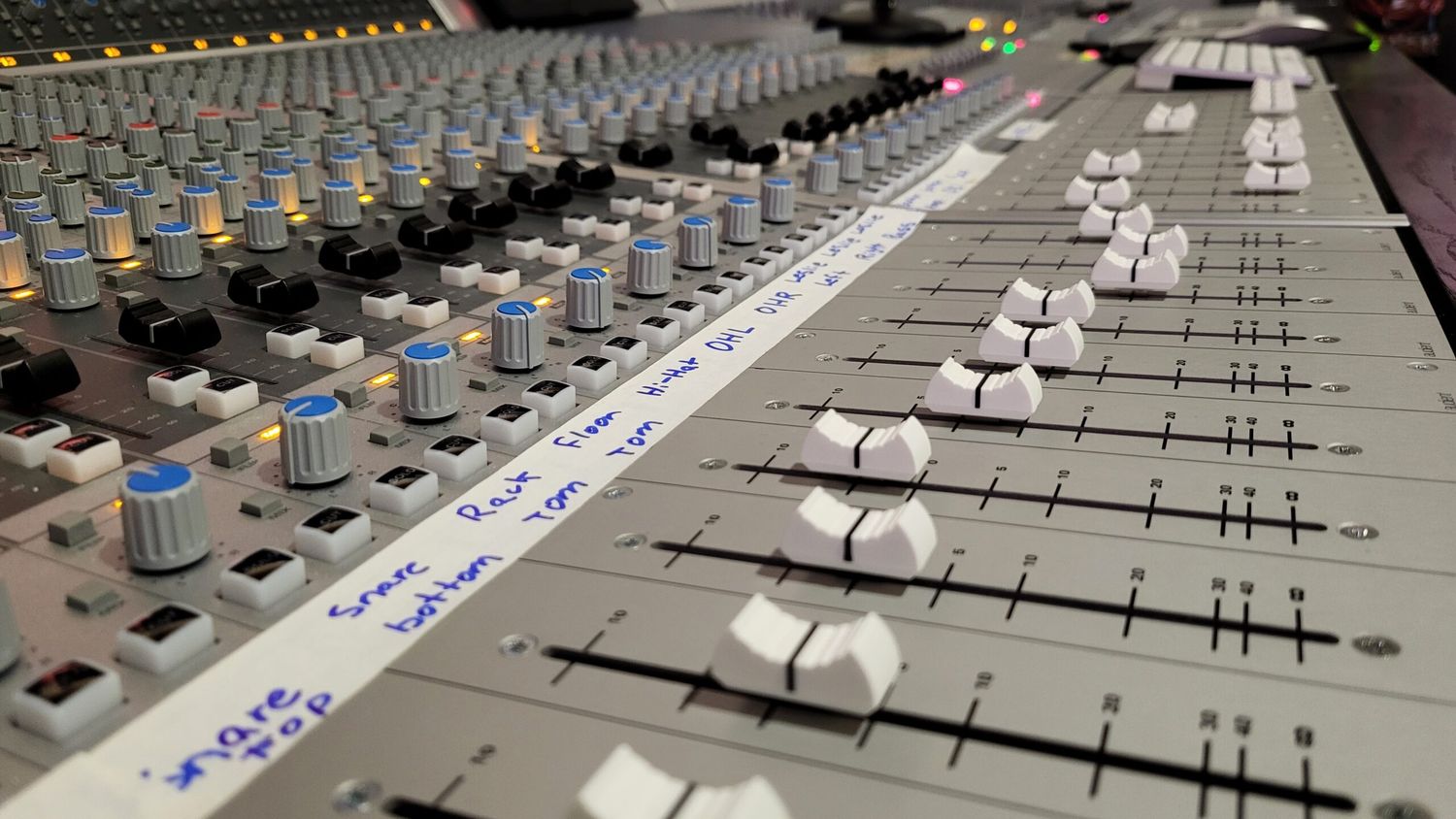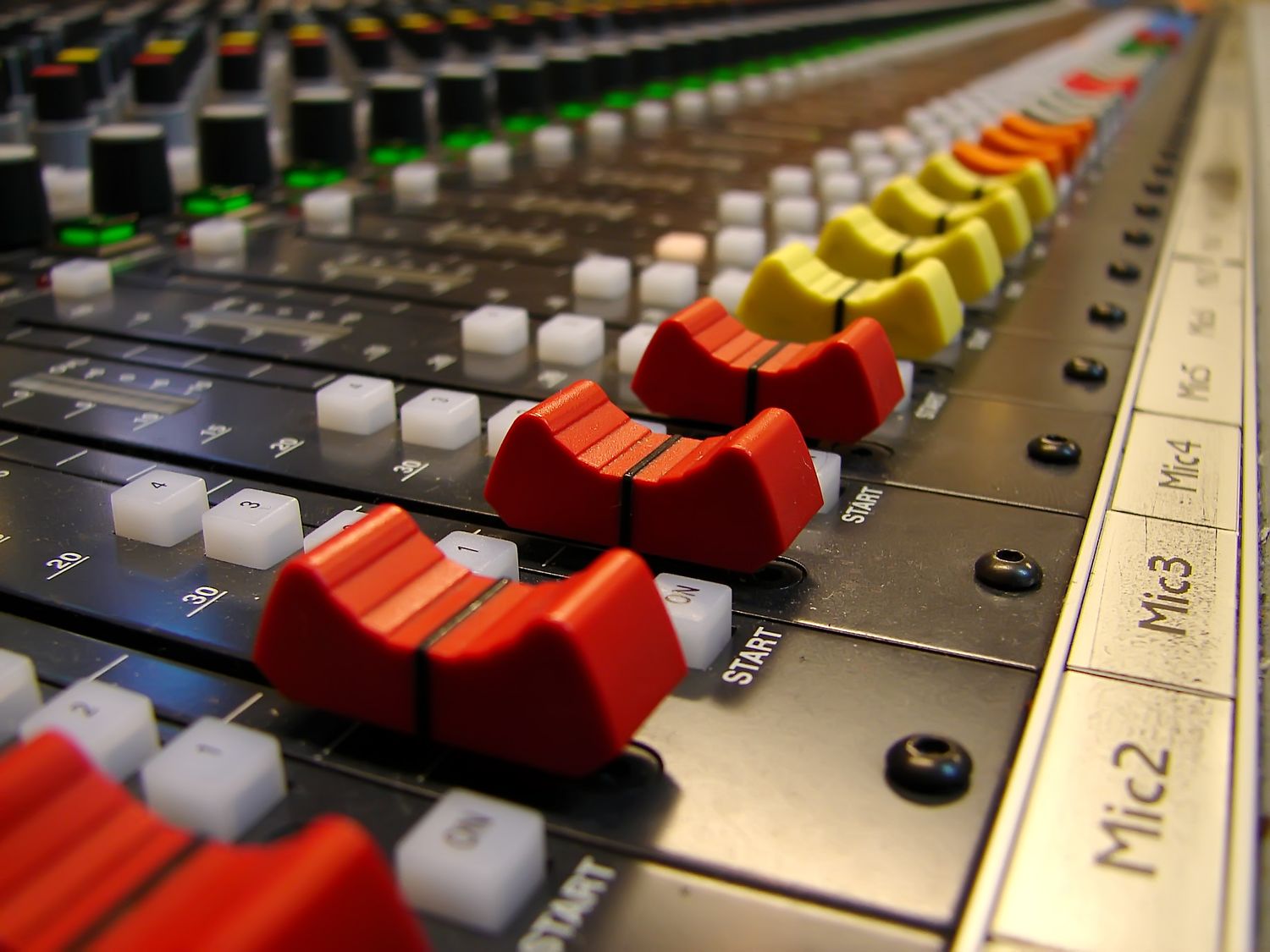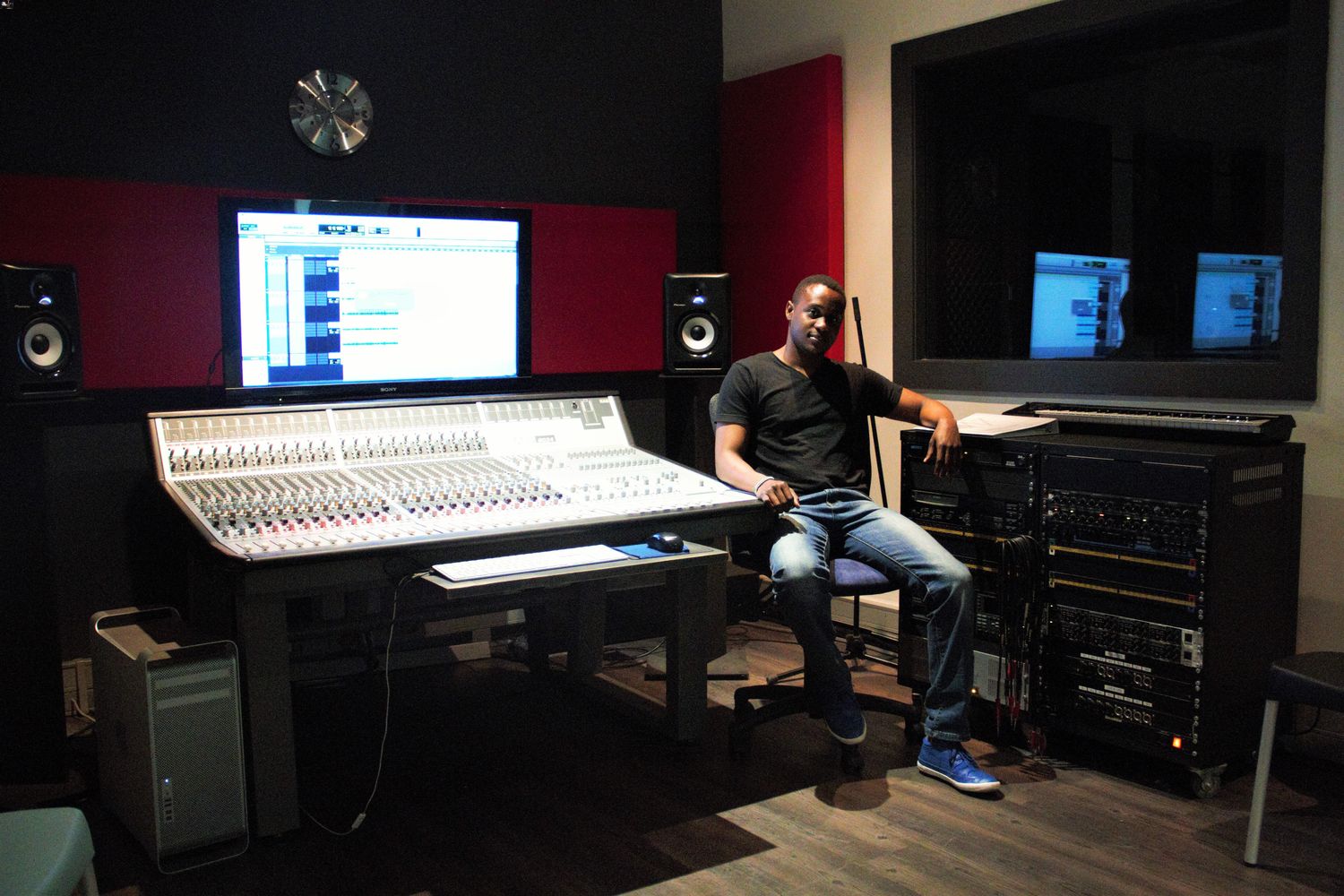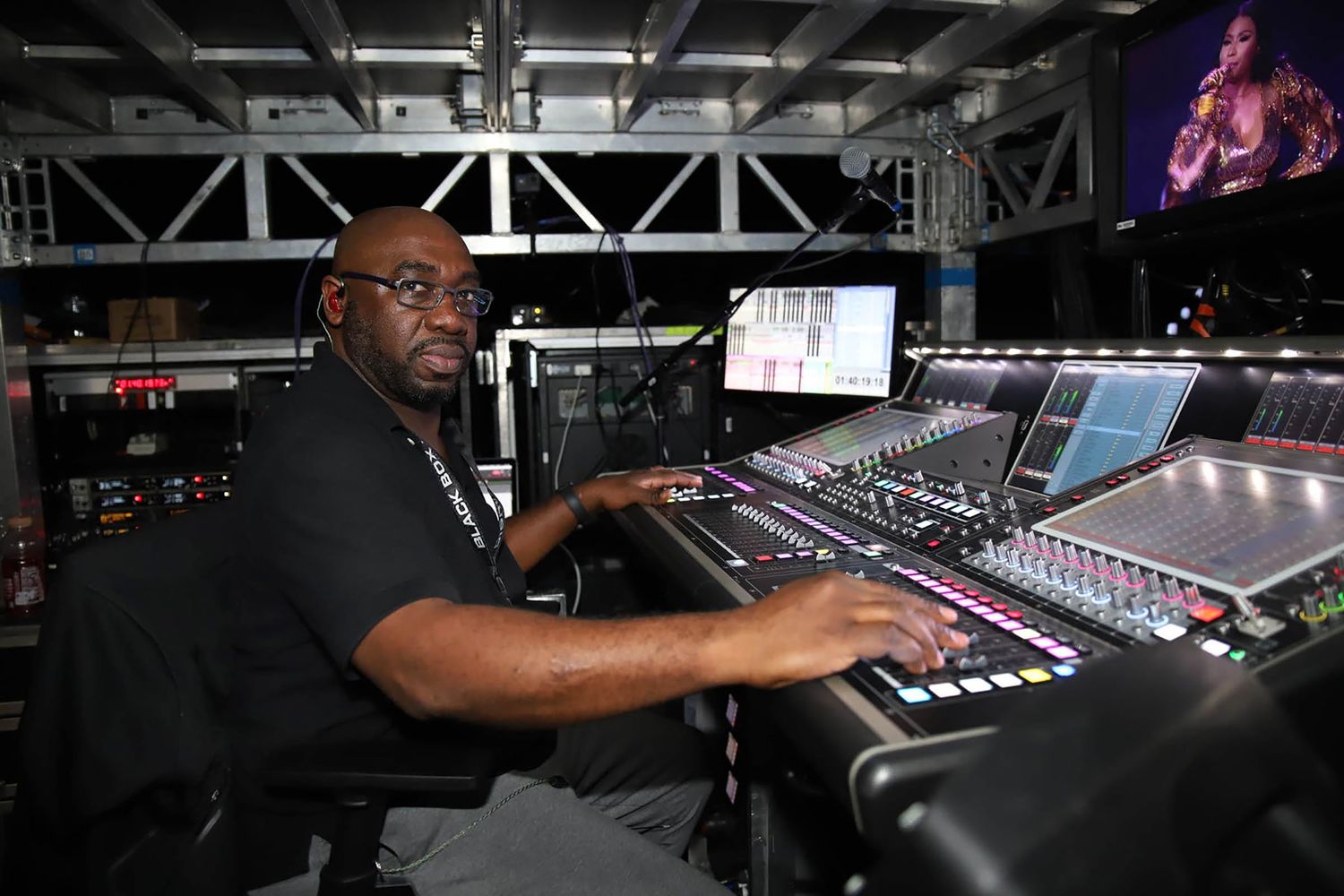Home>Production & Technology>Sound Engineer>How To Be A Successful Sound Engineer
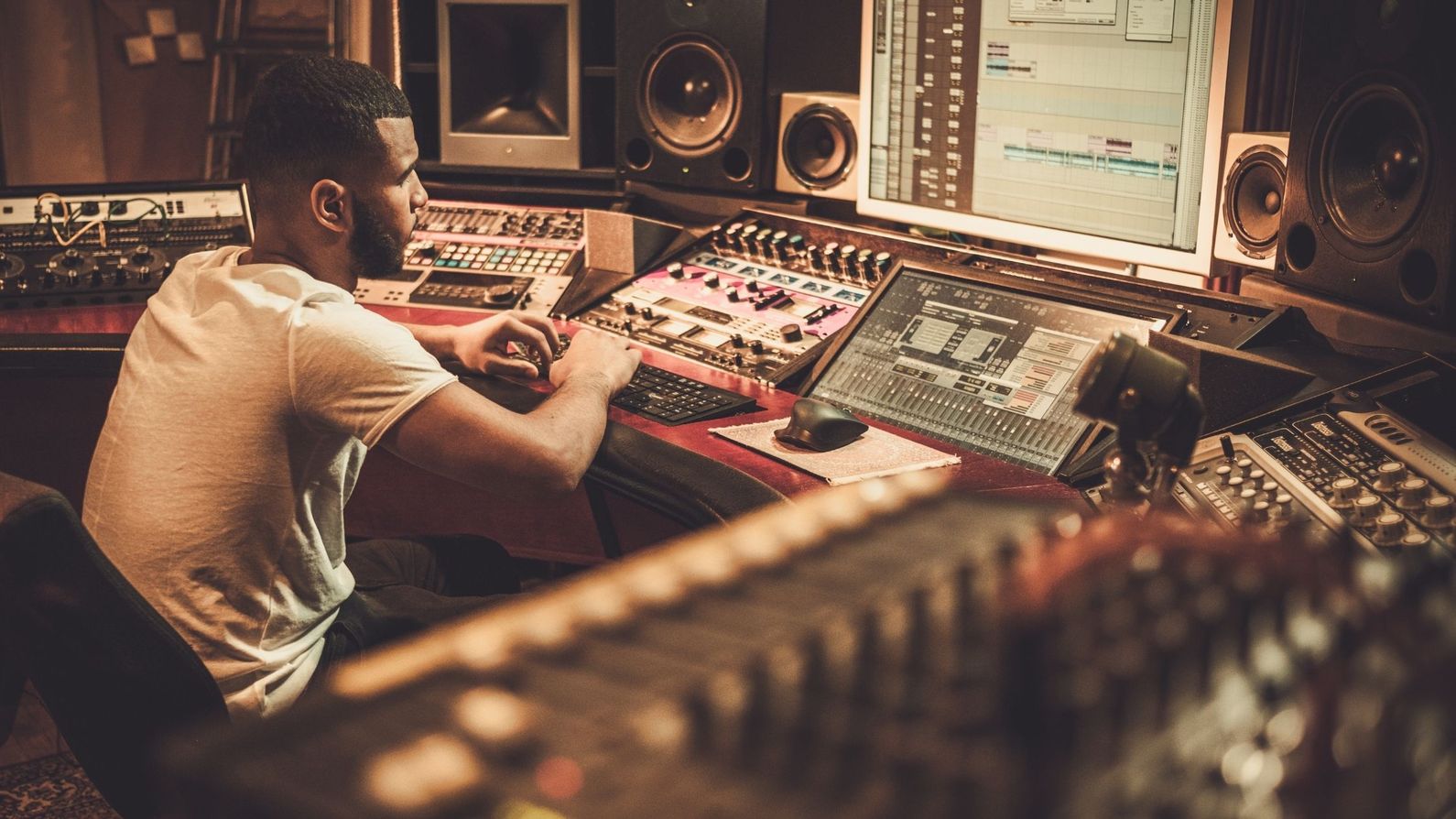

Sound Engineer
How To Be A Successful Sound Engineer
Modified: March 7, 2024
Learn the essential skills and techniques to become a successful sound engineer. Discover the tools and knowledge needed to excel in the field of sound engineering.
(Many of the links in this article redirect to a specific reviewed product. Your purchase of these products through affiliate links helps to generate commission for AudioLover.com, at no extra cost. Learn more)
Table of Contents
Introduction
Becoming a successful sound engineer is a rewarding journey that requires a unique blend of technical expertise, creativity, and interpersonal skills. Sound engineers play a pivotal role in the music, film, television, and live event industries, shaping the way audiences experience sound. Whether it's capturing the perfect guitar riff in a recording studio or ensuring crystal-clear audio at a live concert, sound engineers are the unsung heroes behind the scenes.
In this comprehensive guide, we will delve into the essential qualities and skills that pave the way for a prosperous career in sound engineering. From formal education and technical proficiency to communication, problem-solving, and adaptability, we will explore the multifaceted nature of this dynamic profession. By understanding the core competencies and mindset required to excel in this field, aspiring sound engineers can embark on a path that leads to success and fulfillment.
Throughout this article, we will uncover the intricacies of sound engineering, shedding light on the diverse opportunities and challenges that professionals encounter in this ever-evolving industry. Whether you're a budding enthusiast eager to kickstart your journey or a seasoned sound engineer seeking to refine your craft, this guide will serve as a compass, navigating you through the essential traits and strategies that underpin a thriving career in sound engineering.
Join us as we embark on a captivating exploration of the art and science of sound engineering, unraveling the secrets to mastering this dynamic and exhilarating profession. Let's dive into the world of sound engineering and discover what it takes to thrive in this electrifying realm of sonic innovation and creativity.
Education and Training
Becoming a proficient sound engineer often begins with a solid foundation in education and training. While some individuals may possess a natural inclination towards sound and audio, formal education can provide invaluable knowledge and technical expertise that serve as the bedrock of a successful career in this field.
Academic Pursuits
Embarking on the journey to become a sound engineer frequently involves pursuing a degree or diploma in audio engineering, sound production, or a related field. Academic programs in sound engineering typically cover a wide array of subjects, including acoustics, signal processing, music theory, recording techniques, and sound design. These courses equip aspiring sound engineers with a comprehensive understanding of the principles and technologies that underpin the creation and manipulation of sound.
Hands-On Experience
While classroom learning lays the groundwork, hands-on experience is equally crucial in honing the skills of a sound engineer. Many educational institutions offer practical training in recording studios, live sound environments, and post-production facilities, providing students with the opportunity to apply theoretical knowledge in real-world scenarios. This practical exposure not only cultivates technical proficiency but also fosters a deep appreciation for the nuances of sound engineering.
Specialized Certifications
In addition to formal education, obtaining specialized certifications can further enhance a sound engineer's credentials. Certifications in audio software, mixing consoles, and sound reinforcement systems demonstrate a commitment to staying abreast of industry advancements and mastering the tools of the trade. Moreover, these certifications can bolster one's professional profile and open doors to a spectrum of career opportunities.
Continuous Learning
The landscape of sound engineering is constantly evolving, driven by technological advancements and innovative techniques. As such, a commitment to lifelong learning is paramount for sound engineers. Staying updated with the latest audio technologies, industry trends, and best practices through workshops, seminars, and online courses is essential for remaining competitive and adaptable in this dynamic field.
In essence, a combination of formal education, practical experience, specialized certifications, and a thirst for continuous learning forms the cornerstone of a sound engineer's education and training. By embracing these avenues, aspiring sound engineers can embark on a journey of growth and mastery, equipped with the knowledge and skills to thrive in the captivating realm of sound engineering.
Technical Skills
Technical prowess forms the bedrock of a sound engineer's expertise, encompassing a diverse array of competencies that are instrumental in shaping the sonic landscape. From operating complex audio equipment to manipulating sound with precision and finesse, sound engineers must possess a multifaceted skill set to excel in their craft.
Proficiency in Audio Equipment
A sound engineer's proficiency in operating a wide range of audio equipment is paramount. This includes a deep understanding of recording consoles, microphones, amplifiers, and signal processors. Mastery of these tools enables sound engineers to capture, process, and manipulate sound with precision, ensuring optimal audio quality in diverse settings, from recording studios to live events.
Sound Editing and Mixing
The ability to edit and mix sound is a cornerstone of a sound engineer's technical repertoire. Proficiency in digital audio workstations (DAWs) such as Pro Tools, Logic Pro, or Ableton Live is essential for manipulating and arranging audio tracks, applying effects, and achieving a cohesive sonic blend. Sound engineers must possess a keen ear for detail and a nuanced understanding of audio dynamics to craft immersive and balanced soundscapes.
Acoustics and Sound Design
A comprehensive understanding of acoustics and sound design principles is indispensable for sound engineers. Knowledge of room acoustics, sound propagation, and spatial audio techniques empowers sound engineers to optimize sound environments, mitigate acoustic challenges, and create immersive auditory experiences. Sound design expertise allows for the creation of unique sonic textures and atmospheres, adding depth and character to audio productions.
Live Sound Reinforcement
For sound engineers involved in live events and concerts, proficiency in live sound reinforcement is a critical technical skill. This encompasses setting up sound systems, managing stage monitors, and ensuring optimal sound distribution throughout venues. The ability to troubleshoot and adapt to acoustically challenging environments is essential for delivering exceptional live audio experiences.
Audio Signal Processing
Sound engineers must possess a deep understanding of audio signal processing techniques, including equalization, compression, and reverberation. These tools enable engineers to sculpt and enhance sound, ensuring clarity, balance, and sonic impact in recordings and live performances.
In essence, technical skills are the cornerstone of a sound engineer's expertise, empowering them to harness the power of sound and shape immersive auditory experiences. By honing their proficiency in audio equipment, sound editing, acoustics, live sound reinforcement, and signal processing, sound engineers can navigate the complexities of the sonic realm with finesse and creativity.
Communication Skills
Effective communication lies at the heart of a sound engineer's ability to collaborate, convey ideas, and understand the unique audio preferences of clients and colleagues. While technical expertise forms the foundation of sound engineering, the ability to communicate clearly and empathetically is equally vital in navigating the multifaceted landscape of audio production and live sound reinforcement.
Client Collaboration
Sound engineers often work closely with musicians, producers, directors, and event organizers, translating their creative visions into tangible sonic experiences. Clear and open communication with clients is essential for understanding their artistic preferences, technical requirements, and sonic aspirations. By actively listening to client feedback and articulating technical possibilities, sound engineers can forge strong collaborative partnerships that elevate the quality of audio productions.
Team Coordination
In collaborative audio projects, such as film scoring or live event production, sound engineers must effectively communicate with fellow team members, including musicians, recording artists, and technical crew. Clear and concise communication ensures seamless coordination during recording sessions, live performances, and post-production processes. By fostering a harmonious and communicative environment, sound engineers contribute to the cohesive realization of artistic endeavors.
Problem Resolution
The ability to communicate effectively under pressure is crucial for sound engineers when troubleshooting technical issues or addressing unforeseen challenges. Whether it's resolving equipment malfunctions in a live concert setting or troubleshooting software glitches in a recording studio, clear and decisive communication is essential for swiftly resolving issues and minimizing disruptions to audio workflows.
Client Education
Sound engineers often interact with clients who may not possess technical expertise in audio production. Effective communication skills enable sound engineers to explain complex technical concepts, equipment functionalities, and audio processes in a clear and accessible manner. By demystifying technical jargon and empowering clients with knowledge, sound engineers foster trust and transparency in their professional relationships.
Interdepartmental Communication
In larger audio production settings, such as film or television studios, sound engineers collaborate with professionals from diverse departments, including directors, producers, and post-production teams. Effective interdepartmental communication ensures that audio elements seamlessly integrate with visual and narrative components, contributing to a cohesive and immersive audience experience.
In essence, honing communication skills is paramount for sound engineers, enabling them to navigate the intricate web of client interactions, team collaborations, problem-solving scenarios, client education, and interdepartmental dynamics. By mastering the art of clear, empathetic, and solution-oriented communication, sound engineers elevate their professional efficacy and contribute to the seamless realization of captivating auditory experiences.
Problem-Solving Skills
Problem-solving skills are the linchpin of a sound engineer's ability to navigate the myriad challenges and complexities inherent in the realm of audio production and live sound reinforcement. From troubleshooting technical glitches to devising creative solutions for acoustic anomalies, sound engineers must possess a keen problem-solving acumen to ensure seamless audio experiences across diverse settings.
Technical Troubleshooting
In the fast-paced environment of live events or recording sessions, technical malfunctions can arise unexpectedly, posing potential disruptions to audio workflows. Sound engineers adept in problem-solving approach such scenarios with a methodical mindset, swiftly diagnosing issues with audio equipment, software, or signal flow. By leveraging their technical expertise and systematic troubleshooting methodologies, sound engineers can efficiently rectify malfunctions, ensuring uninterrupted audio performance and client satisfaction.
Acoustic Challenges
Acoustic environments vary widely, presenting sound engineers with unique challenges such as reverberation, sound reflections, and frequency imbalances. When confronted with acoustically challenging spaces, sound engineers employ problem-solving skills to mitigate adverse sonic effects and optimize audio quality. This may involve strategic placement of microphones, implementation of acoustic treatments, or real-time adjustments to equalization and spatial processing, ultimately transforming acoustic impediments into opportunities for sonic enhancement.
Adaptation to Unforeseen Circumstances
In the dynamic landscape of live sound reinforcement, unforeseen circumstances, such as inclement weather or sudden changes in performance dynamics, demand agile problem-solving skills from sound engineers. The ability to adapt swiftly to evolving situations, recalibrate sound systems, and mitigate environmental factors is essential for delivering consistent and exceptional audio experiences. Sound engineers adept in problem-solving thrive in high-pressure scenarios, leveraging their resourcefulness and expertise to surmount unexpected challenges with finesse and composure.
Software and Hardware Integration
The integration of diverse audio software and hardware components necessitates adept problem-solving skills from sound engineers. Whether it involves synchronizing multiple audio interfaces, resolving compatibility issues between software and hardware, or optimizing system performance, sound engineers adept in problem-solving navigate the intricacies of technological integration with precision and efficiency. By addressing technical impediments proactively, sound engineers ensure seamless functionality and optimal performance of audio systems.
Creative Innovation
Beyond technical troubleshooting, problem-solving skills manifest in the realm of creative innovation for sound engineers. From devising unique sound design solutions to crafting inventive audio effects, sound engineers leverage their problem-solving acumen to push the boundaries of sonic creativity. By embracing unconventional approaches and inventive techniques, sound engineers infuse their productions with distinctive sonic signatures, elevating the artistry and impact of audio experiences.
In essence, problem-solving skills are the cornerstone of a sound engineer's ability to surmount technical hurdles, optimize acoustic environments, adapt to unforeseen circumstances, integrate audio technologies, and innovate creatively. By honing their problem-solving acumen, sound engineers navigate the multifaceted challenges of audio production with resilience, ingenuity, and a steadfast commitment to delivering exceptional auditory experiences.
Networking
Networking is a pivotal aspect of a sound engineer's professional journey, offering a gateway to diverse opportunities, collaborative ventures, and industry insights. In the dynamic realm of sound engineering, establishing and nurturing a robust network of connections is instrumental in fostering career growth, expanding one's professional horizons, and staying abreast of industry trends.
Industry Connections
Building a network of industry connections enables sound engineers to forge meaningful relationships with fellow professionals, including musicians, producers, audio technicians, and industry stakeholders. These connections serve as conduits for collaboration, knowledge exchange, and career advancement. By actively engaging with industry peers at events, conferences, and professional gatherings, sound engineers cultivate a rich tapestry of connections that can catalyze new projects, career opportunities, and collaborative endeavors.
Mentorship and Guidance
Networking provides sound engineers with access to seasoned professionals who can offer mentorship, guidance, and invaluable insights garnered from years of experience in the field. Establishing connections with seasoned sound engineers, audio producers, and industry veterans presents aspiring professionals with the opportunity to glean wisdom, receive constructive feedback, and navigate the nuances of the industry with the guidance of seasoned mentors. These mentorship relationships not only offer professional development but also foster a sense of community and camaraderie within the sound engineering landscape.
Collaborative Ventures
Networking facilitates the exploration of collaborative ventures, allowing sound engineers to connect with musicians, filmmakers, content creators, and multimedia artists. These collaborative partnerships present opportunities to contribute to diverse projects, from music productions and film scores to immersive audio experiences. By leveraging their network to engage in collaborative ventures, sound engineers expand their creative repertoire, gain exposure to diverse artistic perspectives, and contribute their expertise to multifaceted audio productions.
Industry Insights and Trends
Engaging in networking activities provides sound engineers with access to industry insights, emerging trends, and technological advancements. By participating in industry forums, online communities, and professional gatherings, sound engineers gain exposure to cutting-edge audio technologies, best practices, and evolving industry standards. This exposure empowers sound engineers to stay at the forefront of industry developments, adapt to emerging trends, and harness innovative tools and techniques to elevate their craft.
Professional Advocacy
Networking fosters professional advocacy, enabling sound engineers to showcase their expertise, portfolio, and professional ethos to a wider audience. By cultivating a strong network of industry connections, sound engineers position themselves to receive endorsements, referrals, and professional recommendations from peers and collaborators. This advocacy amplifies their professional visibility, bolsters their credibility, and opens doors to a spectrum of career opportunities and projects.
In essence, networking is a cornerstone of a sound engineer's professional journey, offering avenues for collaboration, mentorship, industry insights, and career advancement. By actively engaging in networking endeavors, sound engineers cultivate a vibrant ecosystem of connections that enrich their professional trajectory, foster creative collaborations, and position them at the vanguard of the dynamic and ever-evolving landscape of sound engineering.
Professionalism
Professionalism is the bedrock of a sound engineer's ethos, encapsulating a multifaceted commitment to excellence, integrity, and ethical conduct in every facet of their professional endeavors. At its core, professionalism embodies a set of principles and practices that define the conduct, demeanor, and ethical standards upheld by sound engineers as they navigate the dynamic landscape of audio production and live sound reinforcement.
Ethical Integrity
Ethical integrity forms the cornerstone of professionalism for sound engineers. Upholding ethical standards in their interactions with clients, colleagues, and industry stakeholders is paramount. This encompasses transparency in business dealings, respect for intellectual property rights, and a steadfast commitment to honesty and integrity in all professional engagements.
Reliability and Accountability
Professionalism entails a steadfast dedication to reliability and accountability. Sound engineers are entrusted with the responsibility of delivering exceptional audio experiences, and as such, they must demonstrate unwavering reliability in meeting deadlines, honoring commitments, and delivering high-quality results. Moreover, accountability for their actions, decisions, and the outcomes of their work is integral to fostering trust and credibility within the professional sphere.
Respectful Collaboration
In the collaborative tapestry of audio production, professionalism manifests in the form of respectful collaboration. Sound engineers engage with a diverse array of clients, artists, and industry professionals, and professionalism dictates an environment of mutual respect, open communication, and a collaborative spirit. By fostering an atmosphere of respect and professionalism, sound engineers contribute to the harmonious realization of creative visions and the seamless execution of audio projects.
Continuous Professional Development
Embracing a commitment to continuous professional development is a hallmark of professionalism for sound engineers. The dynamic nature of the audio industry demands a proactive approach to staying abreast of technological advancements, industry trends, and best practices. By engaging in ongoing learning, skill enhancement, and professional growth, sound engineers exemplify the spirit of professionalism and position themselves as adept and adaptable practitioners in the ever-evolving realm of sound engineering.
Client-Centric Service
Professionalism in sound engineering is synonymous with a client-centric approach to service. Sound engineers prioritize understanding and fulfilling the unique needs and aspirations of their clients, ensuring that every project is executed with meticulous attention to detail, empathy, and a commitment to exceeding client expectations. By placing the client's satisfaction and vision at the forefront, sound engineers embody the essence of professionalism in their service delivery.
In essence, professionalism is the guiding ethos that shapes the conduct, character, and trajectory of sound engineers in their professional odyssey. By embracing ethical integrity, reliability, respectful collaboration, continuous professional development, and a client-centric approach, sound engineers epitomize the essence of professionalism, positioning themselves as trusted custodians of sonic innovation and excellence.
Adaptability
Adaptability stands as a cornerstone of a sound engineer's prowess, embodying the capacity to navigate the ever-evolving landscape of audio production with agility, resilience, and a proactive mindset. In the dynamic realm of sound engineering, adaptability transcends mere technical proficiency, encompassing a multifaceted ability to embrace change, surmount challenges, and innovate in response to shifting industry paradigms and creative demands.
The audio industry is characterized by rapid technological advancements, paradigm shifts in production methodologies, and evolving artistic sensibilities. Sound engineers adept in adaptability demonstrate a readiness to embrace emerging technologies, assimilate new workflows, and pivot seamlessly in response to industry trends. Whether it involves mastering cutting-edge audio software, integrating innovative production techniques, or harnessing emerging audio formats, adaptability empowers sound engineers to remain at the vanguard of industry evolution.
Moreover, adaptability is instrumental in navigating the diverse array of audio projects and environments encountered by sound engineers. From recording studios and live concert venues to film sets and post-production facilities, each setting presents unique challenges and nuances. Sound engineers adept in adaptability showcase a capacity to tailor their expertise to suit the specific demands of each environment, whether it involves optimizing acoustics, configuring sound systems, or collaborating with diverse creative teams. This adaptive prowess ensures that sound engineers can thrive in multifaceted audio landscapes, delivering exceptional results across diverse projects and settings.
In the face of unforeseen challenges, adaptability empowers sound engineers to pivot swiftly, devise creative solutions, and maintain composure in high-pressure scenarios. Whether it's addressing technical malfunctions, mitigating acoustic anomalies, or adapting to last-minute artistic revisions, sound engineers adept in adaptability exhibit a resourceful and resilient approach. This ability to pivot seamlessly in response to unforeseen circumstances ensures that sound engineers can uphold the integrity of audio projects and deliver exceptional results, even in the face of adversity.
Ultimately, adaptability is not merely a skill but a mindset that permeates every facet of a sound engineer's professional journey. By embracing adaptability, sound engineers position themselves as agile, innovative, and resilient practitioners, capable of navigating the complexities of audio production with finesse, creativity, and an unwavering commitment to delivering exceptional auditory experiences.
Conclusion
In conclusion, the journey to becoming a successful sound engineer is a dynamic odyssey that demands a multifaceted blend of technical expertise, creativity, interpersonal skills, and a steadfast commitment to professional excellence. From formal education and technical proficiency to communication, problem-solving, networking, professionalism, and adaptability, the essential qualities and skills explored in this guide underscore the diverse facets of this exhilarating profession.
Sound engineering is not merely a vocation but a captivating fusion of art and science, where sonic innovation converges with technical mastery to shape immersive auditory experiences. Aspiring sound engineers embarking on this path are encouraged to embrace a holistic approach to their professional development, integrating formal education with hands-on experience, continuous learning, and a proactive pursuit of specialized certifications. This foundation equips them with the knowledge and skills to navigate the complexities of audio production and live sound reinforcement with finesse and creativity.
The technical skills encompass a broad spectrum of competencies, from operating audio equipment and sound editing to acoustics and live sound reinforcement, empowering sound engineers to sculpt and manipulate sound with precision and artistry. Moreover, the emphasis on communication skills underscores the pivotal role of effective interpersonal dynamics, client collaboration, and problem resolution in the realization of exceptional audio experiences.
Problem-solving skills emerge as a linchpin of a sound engineer's resilience and ingenuity, enabling them to surmount technical hurdles, optimize acoustic environments, and adapt swiftly to unforeseen challenges. Furthermore, the significance of networking, professionalism, and adaptability underscores the holistic ethos that underpins a successful career in sound engineering, fostering collaborative partnerships, ethical integrity, and a proactive mindset in response to industry evolution.
As sound engineers navigate the dynamic and ever-evolving landscape of audio production, embracing these essential qualities and skills positions them as adept custodians of sonic innovation, poised to shape captivating auditory experiences and contribute to the rich tapestry of the music, film, television, and live event industries.
In essence, the journey to becoming a successful sound engineer is a symphony of technical prowess, creative vision, and professional ethos, culminating in the orchestration of immersive auditory experiences that resonate with audiences and elevate the artistry of sound. With a steadfast commitment to continuous growth, adaptability, and a passion for sonic innovation, aspiring sound engineers embark on a transformative odyssey, poised to thrive in the electrifying realm of sound engineering.

